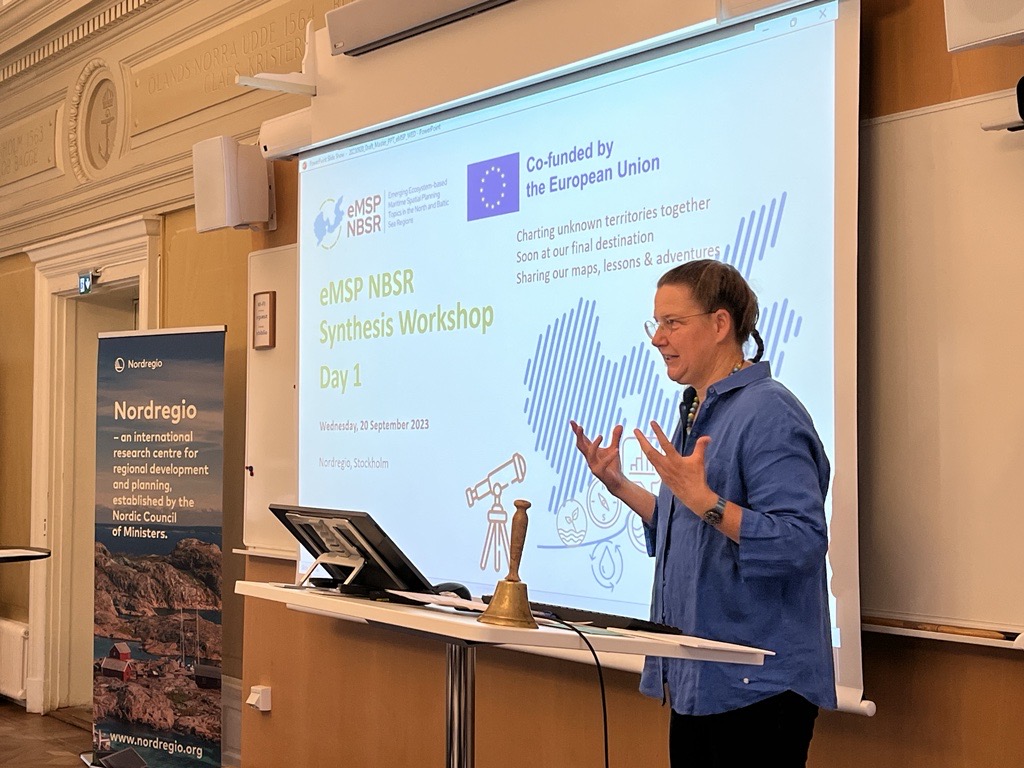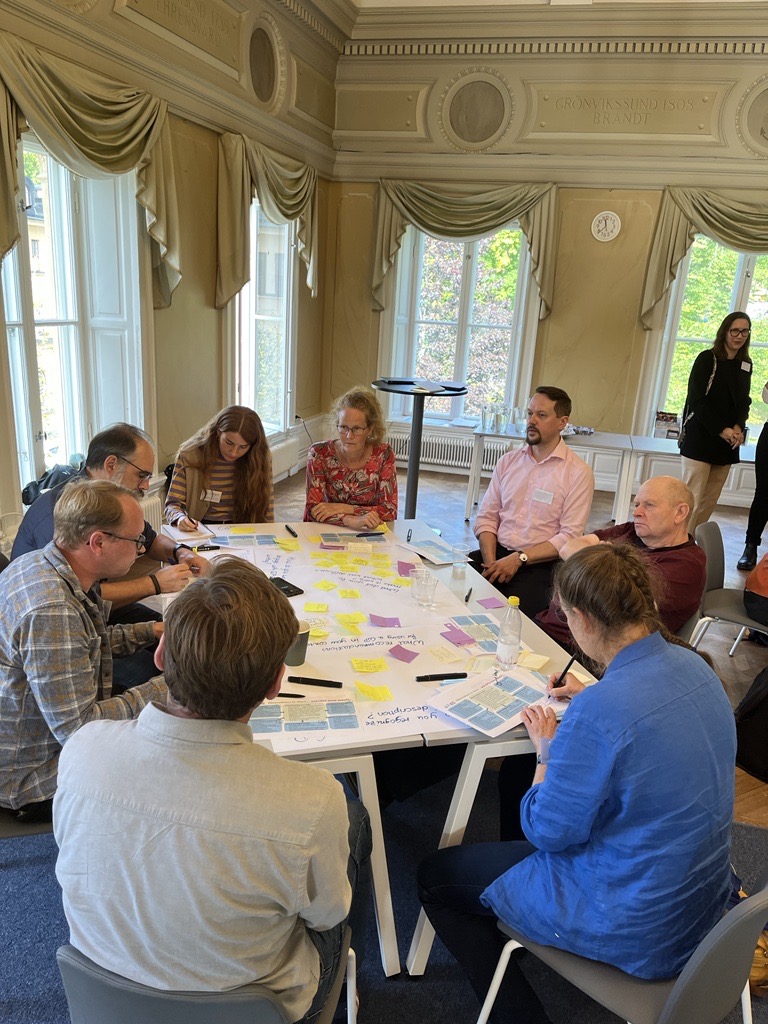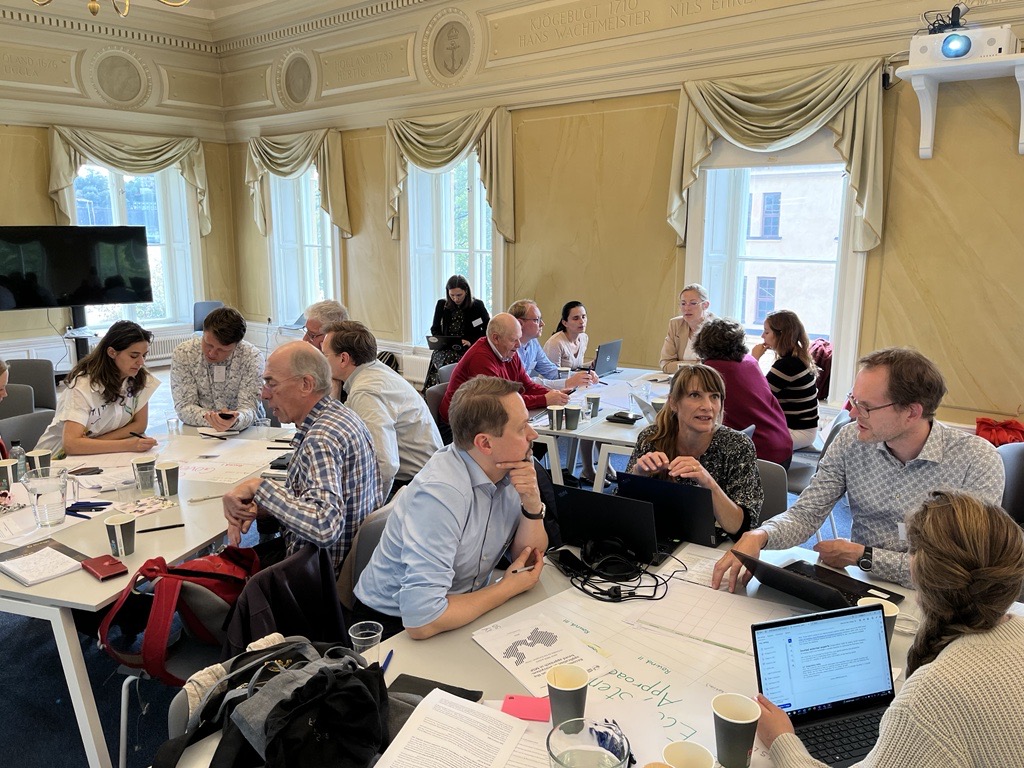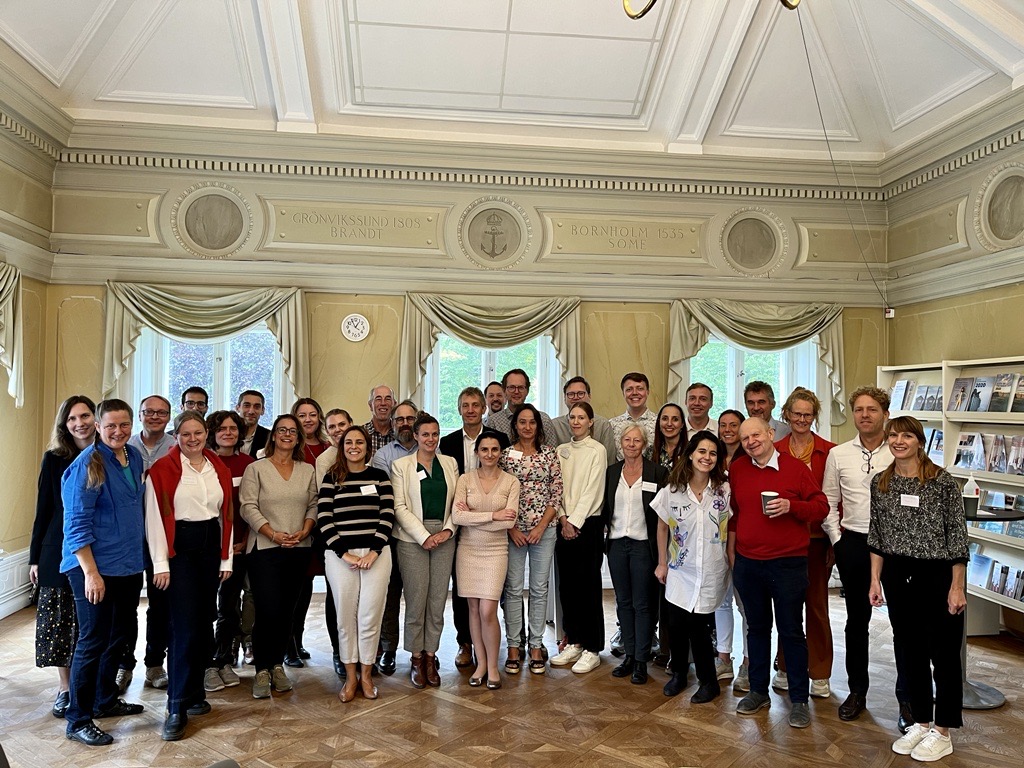In a world struggling with climate change, biodiversity loss and political uncertainty, problems and paths towards sustainable marine solutions are increasingly complex. In order to further study and develop approaches attempting to tackle challenges, Nordregio is a partner in the EU project “Emerging Ecosystem-based Maritime Spatial Planning Topics in the North and Baltic Sea Regions” – eMSP NBSR.
The eMSP NBSR project gathers policymakers, practitioners, and researchers of 15 partner organisations from 9 countries and regions. Together, we seek to promote better integrated ocean governance, facilitate learning across use sectors and marine basins, and collaboratively develop strategies to promote a more sustainable use of our shared oceans. Solutions involve numerous actors with different ambitions and mandates, which increases the complexity. By developing capacity for implementing marine/maritime spatial planning and learning across sea basins in the North and Baltic Sea Regions, the project aims to promote a more integrated and long-term sustainable governance.
Synthesis workshops and crunch time
In the third week of September, Nordregio hosted an international synthesis workshop aimed at advancing the work with eMSP NBSR. The workshop also aimed to draw lessons learned from testing a collaborative learning approach to work with complex issues in marine governance.
During the two intensive and interactive workshop days, the participants worked to fine-tune the seven policy briefs – completed by 80% when arriving at Nordregio’s office and crunched towards completion.



eMSP NBSR project – a testbed for communities of practice
eMSP NBSR is built around so-called Communities of Practices (CoPs), as a working method and focuses on five critical topics: Ocean Governance, Integrating an Ecosystem-based Approach in Marine Spatial Planning, Sustainable Blue Economy, Monitoring and Evaluation, and Data and Knowledge Sharing. CoPs are an open problem and participant driven form of collaboration that can complement the existing formal procedures and help break down administrative, disciplinary and stakeholder silos to address the complex issues that we currently face when managing our seas.
The CoP method has captured the EU’s interest: an evaluation of the method is part of the project, and will result in a separate policy brief and a scientific paper. Nordregio is responsible for these two products, and together with other project partners, leads a science-policy interface work package which facilitates knowledge support and mentoring of the communities of practice.
Challenges and Solutions
Each session of the workshop was kicked off by inspirational talks by MSP experts. Peter Jones, Professor in Environmental Governance at University College London, stressed the importance of adopting a social-ecological systems approach to marine governance. He advocated for a combination of top-down and bottom-up governance to effectively address MSP challenges in a multi-level governance way.
“To realise ecological connectivity, we need institutional connectivity,” Jones emphasised, noting the ongoing tug-of-war in Europe between differing points of departure in maritime spatial planning. Ecosystem-based MSP, as the name suggest, has ecosystems conservation as the foundation for long-term sustainable and resilient development while others emphasise the need for a fast development of a sea-based economy and prioritise the security of food and energy provision.
While MSP holds promise for a more sustainable management of our seas, challenges persist. Countries’ and stakeholders’ interests often clash, an issue that cannot simply be legislated away. A way out is to find a common denominator by dismantling administrative and sector silos.
Catarina Frazao Santos, Researcher and lecturer at the University of Lisbon, MARE–Marine and Environmental Sciences Centre gave her insights on climate-smart marine spatial planning in an inspirational talk:
“Climate change is changing the oceans, and in turn, that will change the way humans use the ocean. Even with proactive marine spatial plans, there will be surprises that require an adaptive and flexible system,” Santos concluded, shedding light on the path ahead.

Seven policy briefs on how to improve marine planning practice
The eMSP project is accelerating toward the publication of seven policy briefs later this year, offering easily accessible input to improve MSP practice.
“My key takeaway from the workshop is that outputs are practical, realistic and can be implemented, through influential participants’ networks and high-level contacts”, says Peter Jones.
Stay tuned for our lessons, which we also want to share in our final conference in Gdansk 31 January to 1 February 2024. Read more and register here.




